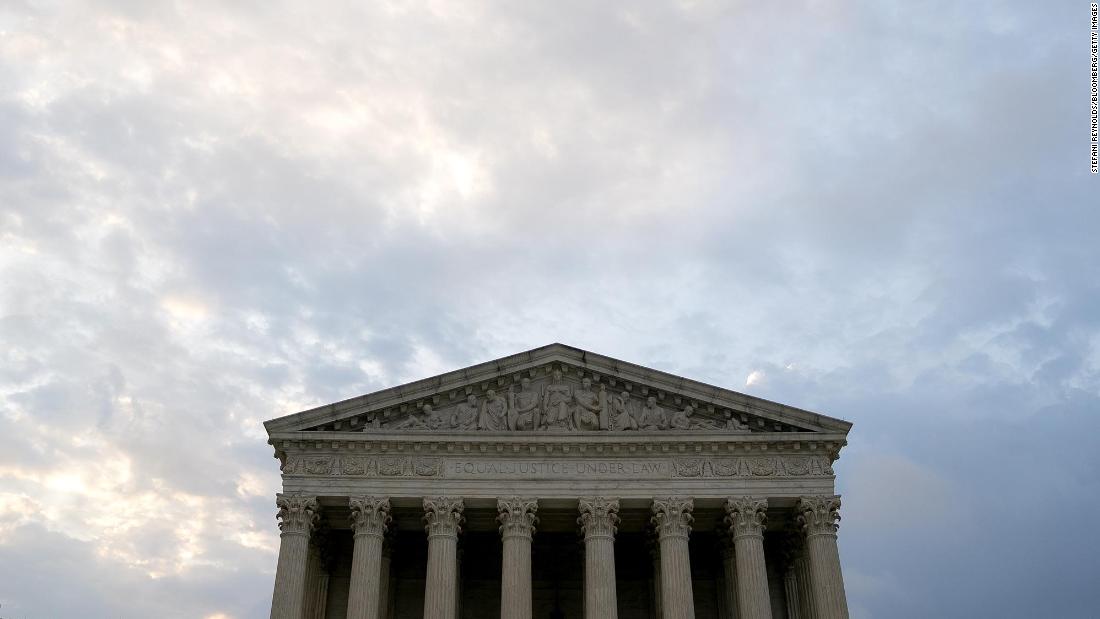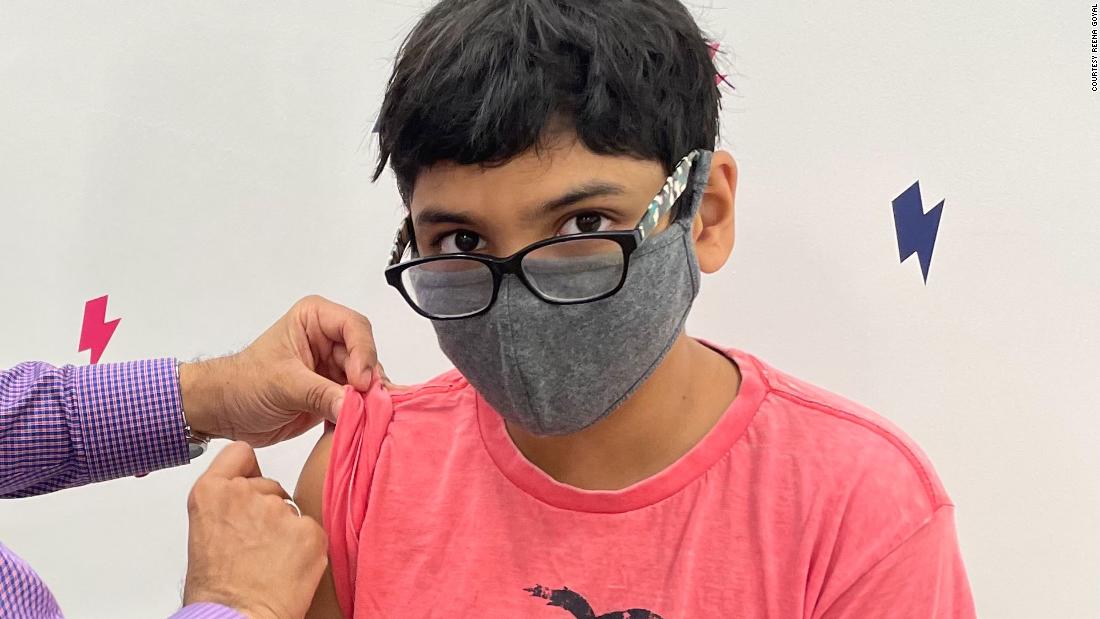| Like this newsletter? Tell your friends to sign up here. Questions about the coronavirus or vaccines? Ask here. And follow all our latest updates.
By Eliza Mackintosh, CNN Wednesday, June 2
Despite a grueling schedule helping to shape the US government's response to the coronavirus crisis, Dr. Anthony Fauci found spare moments to respond to emailed medical queries -- even when they came from complete strangers.
On March 4 last year, someone pinged him with a question about whether pneumonia vaccines could provide some protection against severe Covid-19. Fauci responded in detail about an hour later.
"Oh my god … I honestly never expected you to reply and I thank you from the bottom of my heart for being so generous," the person wrote back, according to BuzzFeed News, which published more than 3,200 pages of emails from Fauci's inbox after obtaining correspondence spanning from January to June 2020. CNN also obtained a number of emails from February, but many were heavily redacted.
The director of the National Institute of Allergy and Infectious Diseases -- and a doctor for the National Institutes of Health for more than 50 years -- Fauci had worked under six US presidents including then-President Donald Trump before he became the public face of the federal response to Covid-19. It didn't take long for questions to come streaming in. He was fielding dozens of emails every day, from team members, former colleagues, old friends, reporters, producers, celebrities -- and regular Americans desperate for advice or looking to leave a note of "thanks."
The correspondence offers a rare glimpse into Fauci's frantic schedule and polite, to-the-point demeanor during the time he emerged as a rare source of frank honesty within the Trump administration's Covid-19 task force. But they also reveal the weight that came with the role.
"This is White House in full overdrive and I am in the middle of it," Fauci wrote in a February 2 email published by BuzzFeed. "Reminiscent of post-anthrax days." THE LATEST NUMBERS Global Cases 171,244,796
Global Deaths 3,566,808 US Cases 33,288,014
US Deaths 595,240 YOU ASKED. WE ANSWERED. Q Is it OK to mix coronavirus vaccine brands? A Canada has changed its guidelines on mixing doses of Covid-19 vaccines, the country's health agency said Tuesday. It is still optimal, however, to use the same brand of vaccine for both doses, the country's top doctor said.
The Public Health Agency of Canada said people who received an AstraZeneca vaccine for the first dose may get either a Pfizer or Moderna vaccine for the second dose. People who received one of the two mRNA vaccines -- Pfizer's or Moderna's -- may get either of the two brands for the second dose.
"Try and find the same vaccine, the same mRNA vaccine -- but if you can't, for some reason, then consider them interchangeable," Dr. Theresa Tam, Canada's chief public health officer, told a news briefing.
Send your questions here. Are you a health care worker fighting Covid-19? Message us on WhatsApp about the challenges you're facing: +1 347-322-0415. WHAT'S IMPORTANT TODAY WHO authorizes China's Sinovac vaccine for emergency use
The World Health Organization (WHO) has authorized a Covid-19 vaccine made by Chinese pharmaceutical company Sinovac for emergency use, paving the way for it to be included in COVAX, the global vaccine-sharing program that low-income countries rely on for doses.
The decision to greenlight the CoronaVac shot was made on Tuesday, a month after WHO approved another Chinese vaccine, made by Sinopharm, for emergency use. And it couldn't have come quickly enough. The need for shots is becoming increasingly acute in Southeast Asia and South America, where cases of Covid-19 are surging. Meanwhile, COVAX has struggled to keep up with demand, amid issues with funding and supply. The initiative suffered a major blow in May when India, home to the world's largest vaccine makers, stopped all exports to prioritize its own population amid a worsening crisis.
"The easy storage requirements of CoronaVac make it very suitable for low-resource settings," WHO Director-General Tedros Adhanom Ghebreyesus said Tuesday. "It's now crucial to get these lifesaving tools to the people that need them quickly."
Bolsonaro slammed for hosting Copa America as Brazil's outbreak worsens
Brazilian President Jair Bolsonaro has sparked an outcry after confirming plans to host South America's largest soccer tournament, the Copa America, despite warnings that Brazil is headed toward a deadly third wave and while cases are climbing faster in the region than anywhere else in the world.
"Since the beginning of the pandemic I have been saying I regret the deaths, but we have to live," Bolsonaro said Tuesday. South America's Football Confederation, CONMEBOL, had earlier in the week announced that it sought to move the tournament from Argentina to Brazil, and publicly thanked the Brazilian President for "opening the doors" to his country. The competition is scheduled to begin in less than two weeks.
CONMEBOL has not specified why the tournament was removed from Argentina, but the country is currently suffering from a rise in coronavirus infections, with a seven-day average of more than 30,000 new daily cases. The virus however is also rampant in Brazil, raising questions in some quarters about its suitability as a host. A Brazilian supreme court judge has given Bolsonaro five days to explain the government's surprise decision to host the tournament amid the country's worst outbreak of the pandemic, Reuters reported.
Now proven against the coronavirus, mRNA can do so much more
When the final Phase 3 data came out last November showing the mRNA vaccines made by Pfizer/BioNTech and Moderna were more than 90% effective, Dr. Anthony Fauci had no words. He texted smiley face emojis to a journalist seeking his reaction.
This astonishing efficacy has held up in real-world studies in the US, Israel and elsewhere. The mRNA technology -- developed for its speed and flexibility as opposed to expectations it would provide strong protection against an infectious disease -- has pleased and surprised even those who already advocated for it.
The messenger RNA, or mRNA, platform may be new to the global public, but it's a technology that researchers had been betting on for decades. Now those bets are paying off, and not just by turning back a pandemic that killed millions in just a year, Maggie Fox writes. ON OUR RADAR
TODAY'S TOP TIP
Vaccinated children can go mask-free at summer camp
Nearly 4 million children have tested positive for Covid-19 since the start of the pandemic, according to the American Academy of Pediatrics, yet severe illness seems relatively rare among children. Still, the US Centers for Disease Control and Prevention (CDC) says kids can get sick and spread it to others, so it is good to take precautions and important to get vaccinated. For those who are fully inoculated there are some real advantages.
Last week, the CDC said summer camp staff and campers who are fully vaccinated don't need to wear masks, except where required by federal, state, local, tribal, territorial regulations or if it is a business or workplace policy.
Here's what else you need to know before sending your kids to summer camp. MORE FROM CNN Supreme Court Justice Neil Gorsuch on Tuesday denied a request from two Colorado churches and their pastors challenging Covid-19-related restrictions that they said treated them less favorably than secular organizations. We need to bring an end to this pandemic, and if our age group doesn't take the vaccine, there will always be a significant chunk of the population that continues to pass the virus and create opportunities for mutations, writes Rai Goyal. Unsubscribe | All CNN Newsletters
Want to easily manage your newsletter subscriptions? Create your account.
Access CNN's Coronavirus Resource.
® © 2021 Cable News Network, Inc. A WarnerMedia Company. All Rights Reserved.
One CNN Center Atlanta, GA 30303 |
SUBSCRIBE TO OUR NEWSLETTER
Our Youtube Channel
Top Articles
-
Baird and NWSL general counsel Lisa Levine were ousted Friday in the wake of a rep...
-
Plus: The high costs of housing, school board politics and alien life abroad July 16, 2021 View in B...
eseries.in - All Rights Reserved 2023-2025







